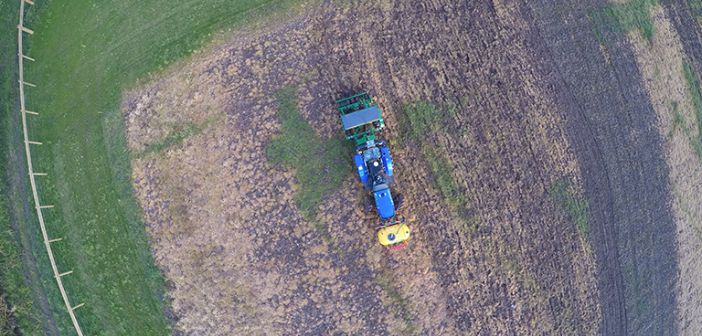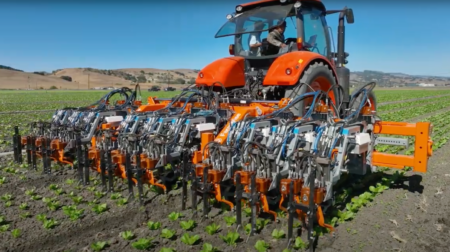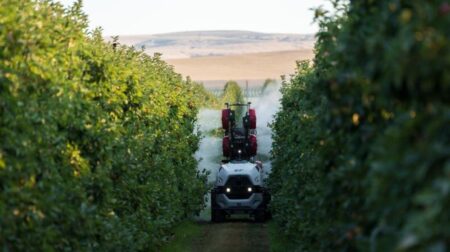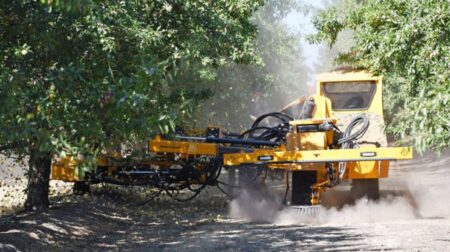Arable crop production using autonomous equipment is both technically and economically feasible, and could help boost medium sized farms, according to new research.
Detailed in a paper, published in Precision Agriculture, the work of Harper Adams University, Shropshire features experience from the university’s Hands Free Farm project. The research demonstrates that medium sized farms can produce arable crops at close to minimum per unit production cost levels harnessing autonomous machines.
According to the study, self-driving systems could see greater independence for farmers, a chance for smaller farms to become cost competitive, and less need for farmers to ‘get big or get out’ in arable production.
Professor James Lowenberg-DeBoer, said: “The Hands Free Farm is a great place to study the economics of crop robotics, which is presently a very sparsely researched area.
“As far as I can tell, this is the one place on earth – certainly within the public sector -where you can get information about a whole cycle for comparing results of the kind we did, particularly with autonomous equipment.”
The academics use data gained from the Hands Free Farm to show how crop robotics could be applied to arable agriculture, drawing upon actual field experience and real-life data unavailable to many other studies of crop robotics.
The nature of the equipment used on the Hands Free projects was also beneficial to the study, Lowenberg-DeBoer added: “Because the Hands Free Hectare used retrofitted conventional equipment, we know the costs of each piece of that equipment – you can work that out using the cost of the conventional equipment.
“It is a much better place to set out this kind of analysis from. The idea was to produce an economic study to help engineers and investors to establish what would be the best use of this equipment.
“Much of this technology is becoming readily available and is almost there – and the Hands Free Farm showed it was possible.”








